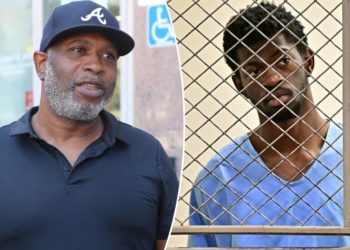The heads of three universities are testifying in Congress, the latest batch of leaders Republicans have called to Washington over allegations of campus antisemitism.
The House Committee on Education and the Workforce called the leaders — from the City University of New York, Georgetown University and the University of California, Berkeley — to Washington to speak about “the role of faculty, funding and ideology” in antisemitism.
The Republican-led hearings on Tuesday are the latest in a series that began before the second Trump administration, months after the start of a brutal war in Gaza set off by a deadly Hamas attack on Israel on Oct. 7, 2023. Earlier hearings with Ivy League university leaders, turned into a disastrous spectacle for the educators.
Since then, Republicans have widened their lens to other kinds of institutions, which they say also failed to keep Jewish students safe when pro-Palestinian protests swept campuses around the country.
While the protests have died down substantially since last year, Tim Walberg, a Michigan Republican and the committee’s chair, said in a statement that lawmakers “continue to see antisemitic hatred festering at schools across the country.”
Mr. Walberg echoed President Trump, who campaigned on punishing universities that he said had not done enough to curb antisemitism. The Trump administration has taken away major sums of money — billions in Harvard’s case — from top universities. A federal task force on antisemitism has singled out many institutions for investigation, and federal agents have detained international students who were involved in pro-Palestinian activism.
Critics of the Republican efforts say the hearings are not sincere efforts to protect Jewish students, but are instead designed to silence speech that supporters of Israel do not like.
The three universities at Tuesday’s hearing have all seen pro-Palestinian activism on their campuses.
-
University of California, Berkeley: Students for Justice in Palestine, a student activist group, was founded at the university in the early 1990s. In 2024, pro-Palestinian demonstrators erected scores of tents on the campus and occupied a building, and an event featuring an Israeli speaker was canceled after protesters smashed doors. The chancellor at the time called it “an attack on the fundamental values of the university.”
-
CUNY: At the City University of New York, one of the nation’s largest public university systems, the law school is particularly known for outspoken pro-Palestinian activists among its graduates. Protests at CUNY campuses in 2024 led to mass arrests. After an investigation, the Education Department’s Office for Civil Rights said last year that the university had mishandled a number of complaints of antisemitism and other forms of bias since 2019.
-
Georgetown: The university, in Washington, D.C., has vocally opposed the Trump administration’s moves against colleges. In March, the U.S. attorney for the district threatened to bar Georgetown graduates from federal jobs because of the university’s diversity programming. The law school dean, in a strongly worded response, called the threat unconstitutional.
Sharon Otterman and Alan Blinder contributed reporting.
Vimal Patel writes about higher education with a focus on speech and campus culture.
The post Three Universities Face Congress Over Antisemitism Allegations appeared first on New York Times.




